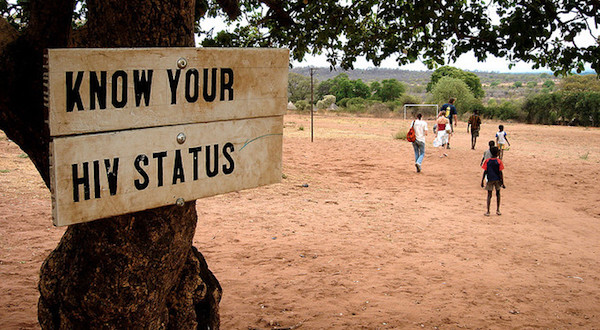Self care means looking after ourselves in mind, body and soul. To make sure we’ve got the body aspect covered, The Daily Vox spoke to Dr Malika Patel, a specialist from UCT’s medical school about the five most common health risks that people with uteruses face.
1. Breast and cervical cancer
Cancer is the name given to a collection of related diseases. In all types of cancer, some of the body’s cells begin to divide without stopping and spread into surrounding tissues. According to the World Health Organisation (WHO) two of the most common cancers are breast and cervical cancers. Detecting both these cancers early is key to keeping women alive and healthy. The latest global figures show that around half a million women die from cervical cancer and half a million from breast cancer each year.
Symptoms:
For breast cancer symptoms may include a mass inside the breast, change in the appearance of the skin, discharge from the nipple, lumps under the arm and breast pain. Patel says you should do regular self-examinations and have any oddities reviewed by your doctor, who might then perform a mammogram and biopsy to confirm whether any cancer is present.
Symptoms of cervical cancer include bleeding from the vagina, pain, foul smelling discharge and bleeding after sex. But again, Patel says, one needs to see a doctor for check ups which involve screening through pap smears or liquid based cytology.
2. HIV/Aids
HIV is more prevalent among women, especially young women. According to the United Nation’s (UN) latest stats, the number of adult women in South Africa living with HIV is around 4 100 000, which is over 1.5 times more than the adult men living with HIV in South Africa (around 2 600 000).
HIV/Aids stays affecting women.
Symptoms:
Patel says you should take regular HIV tests to be certain and always use condoms if not in a monogamous relationship with someone who is also not HIV positive.
3. Sexually transmitted infections
Human papillomavirus (HPV) and pelvic inflammatory disease (PID)
Human papillomavirus remains the most common sexually transmitted infection in the world, so while there are many other sexually transmitted infections to be aware of, this one remains the one to be conscious of. PID affects more women than you might think and often brings great discomfort.
Symptoms:
Human papillomavirus is responsible for cases of cervical cancer. There are no symptoms of when one has HPV, so you have to go for routine cervical screenings to find out whether you have it, says Patel. The symptoms of PID are foul smelling pelvic discharge, fever, abdominal pain and bleeding from the vagina.
4. Unplanned pregnancies and infertility
Women should plan their pregnancies and use effective contraception. There are many good contraceptive options available to women. The most effective, Patel says, are those you can have fitted and forget about, like intrauterine contraceptives or the implant. Once the contraceptive is in place, you don’t have to remember to use it or maintain it in any way. When you want to conceive, the device can be removed and one ovulates almost immediately.
If a woman does not conceive after one year of regular unprotected intercourse, doctors may diagnose infertility and refer the couple for further checks.
5. Maternal health
While some women benefit from improvements in care during pregnancy and childbirth, maternal health care remains an issue for many. According to StatsSA 141 out of every 100 000 women die from complications in pregnancy and childbirth in South Africa. Many of these deaths could have been prevented had access to family planning and basic healthcare services been in place.
Symptoms vary and may be hard to disclose that’s why early booking with doctors and regular check-ups during pregnancy are important, Patel says.









